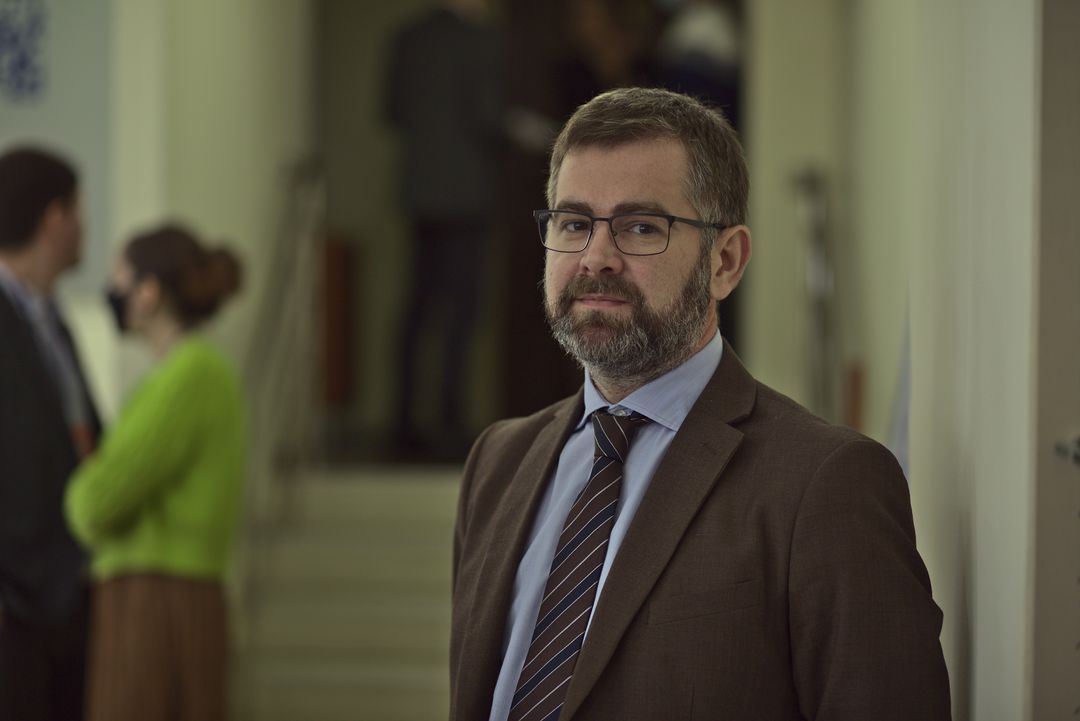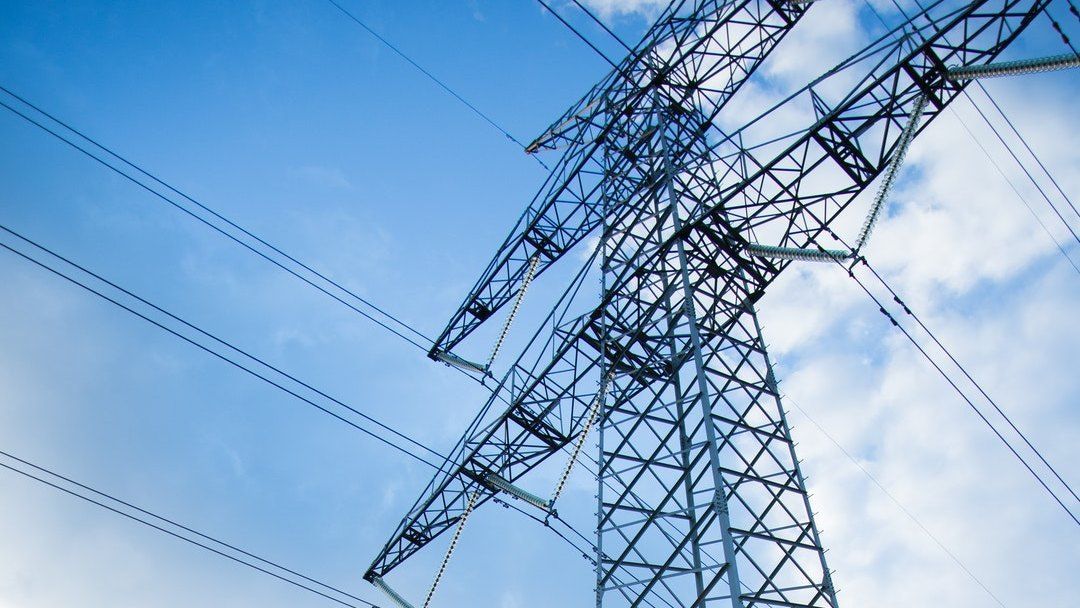In general - the beginning was quite active, which is not surprising - because expectations are very high. The expectation, that the new system, the new regulatory model, will be able to solve perhaps most of the problems associated with the need to restore and upgrade the outdated critical infrastructure of electricity distribution systems.
At the physical level, the state of electricity distribution systems is characterized by a level of wear that has already exceeded normal wear, which is confirmed not only by the actual service life of fixed assets but also by the levels of basic indicators, such as SAIDI and SAIFI. By the above-mentioned levels, Ukraine is lagging, and this should be a reason for a certain shame of Ukrainians - both those involved in the formation and implementation of public policy and those who represent the core business. Shame, much greater, than that which should be felt by a person who is not able to put his house in order, to keep his property in good condition - because it is not only about the property, but also about the state.
At the economic level, the state of electricity distribution systems can be characterized as having a fairly large final capital value, which was mostly formed in the second half of the last century. Thus, there is correspondingly significant need for investment in reconstruction and modernization. According to various figures, the most recent amount announced by the government is $17 billion. Given the challenges facing the task of modernization, we can only be sure that this amount should not be less, but rather - with a high probability, even significantly higher. Moreover, it is very difficult to calculate the actual amount of investment needed with decent accuracy for such a complex system as it is Ukraine's energy system - this requires funding that commensurates with the investments made by operators in recent years. In the economy of complex capital investment, there is an unspoken law - the number of investments needed will likely be many times greater than it can be calculated, and a scale of magnitude much more difficult to calculate.

What challenges determine the urgency, complexity, and cost of the necessary investments in the sector?
The first has already been announced - it is a critical depreciation of capital assets, which not only causes inconvenience to consumers but also slows down economic development. Sustainable energy supply is fundamental for economic activity in the modern world, and not being able to provide it, is an unalterable way for economic degradation.
The second challenge is the challenge of restructuring Ukraine's economy and transforming it from a socialist to a capitalist (market) one, which has already dragged on for 30 years. After the collapse of the Soviet economic system, the Ukrainian economy has still not been able to adapt to the latest realities (which are also not statically waiting but are changing dynamically) of international economic distribution. Energy-intensive industries, which are system-forming for Ukraine's economy, are in a state of crisis. New industries, which should replace the obsolete and non-competitive ones, have not developed to the necessary extent.
The structure of consumers is changing critically, with a significantly increased weight of households, which changes the requirements for the organization of efficient electricity supply. Namely, in terms of economic policy concerning households (which in Ukraine is also called in Soviet - "population") failed in all 30 years, to move away from the socialist, left-wing populist approach in determining the mechanisms of economic compensation for goods and services. Thus, the practice of cross-subsidizing consumers by conditional categories, which is absurd for market relations, continues, and this is at the expense of a decline in absolute and relative parameters of business (which in Ukraine is commonly called in Soviet - "industry and services").
Also, the hostile occupation changed the intra-Ukrainian distribution of productive forces, which added economic problems, including in the field of sustainable and stable energy supply.
The third challenge is the challenge of energy transformation, which is taking place simultaneously at the national and global level. The flourishing of new technologies of electricity generation, the transformation of the energy mix, development of distributed systems, decentralization, digitalization, decarbonization - this is just what lies on the surface of much more complex processes that the global economy is going through, and also in Ukraine, which is trying to be an important part of this economy. In itself, the cost of responding to this challenge, which is facing all the world's economies, is very high, and it is a matter of concern even in economically developed countries.
The fourth challenge is political instability, which causes the unreliability of institutions for the formation and implementation of public policy. In conditions, when the government does not have an approved program of action that provides some immunity and the ability to work at least on the medium-term planning horizon; the relevant ministry does not have the head in the status of an acting minister; the national regulator has an uncertain status - both institutions and personnel - to ensure a sustainable and transparent public policy contributing to the economic development of the industry, is simply impossible, and this must be honestly acknowledged. The energy industry in general, and the electricity segment in particular, does not have an adequate, rather than nominal, development strategy, which should serve as a system of basic coordinates for the development of tactical decisions by all market participants. The NERC, supposed to ensure the sustainable development of the industry in a balance of interests, is in an openly suspended state and under constant overt and covert political pressure. In such conditions, one can be sure of only a single thing - the prospect of energy modernization is under the influence of significant risks, taking more time, and bearing much higher costs than might be expected. Moreover, the burden of such an increase will be borne not only by potential investors, but also the economy as a whole, and hence - every consumer, regardless of the "category".
The fifth challenge is personnel and, above all, management. This challenge cannot be ignored. Moreover, it is one of the key, pervasive and systemic challenges, on which the quality of response to other challenges largely depends. In the new realities, all subjects face this challenge - from the owners and management of the relevant business to the political leadership of the state and civil service. The only question to ask is how familiar these actors are of this challenge and how well they are prepared for it. It is quality management and professional staff that should ensure the adoption of the most optimal decisions at all levels in the extremely complex process of energy transformation. The ability of top managers to make sound judgments, management skills - organizational, communication, analytical, etc. - determine the quality of functioning and developing of systems managed by these managers even more, than any regulatory field.
The challenge of leadership must be singled out. The presence of a strategic vision and powerful carriers of such visions, able to accumulate and systematize all kinds of resources for its implementation - is a key tool for industry transformation. Voluntarism, short-sightedness, secrecy, misunderstanding of economic causation and systemic processes - is a huge waste of time and resources, and calls into question the prospects of the economic and social development of Ukraine.
The sixth challenge can be tried to be called "academic" if there is no other, better, name for it. The point is, the theoretical basis for regulating monopoly markets in Ukraine is poorly developed. Of course, we use the research and theoretical and practical experience of scientists from developed countries. But Ukraine, and this is very obvious, has its specifics, which has already been made clear by the results of numerous attempts to copy, or as it is fashionable to say now - the implementation of unadopted models. Moreover, no country, even among the post-socialist camp, has such a pronounced specificity in the deep structure of economic and social relations, as the experience of Poland, which is very useful. But it can not be automatically copied, the specific past of our state has to be taken into account. Ukraine, as a state, must develop its own scientific and analytical capacity: institutions, personnel, systems of measures, etc., which would provide close support of the decision-making process and follow the feedback from the practice of implementation and realization of such decisions. Not only is the support of independent, non-corporate, non-business or politically engaged donors in Ukraine a rare practice, but even the modest measures of government agencies to build some analytical capacity is constantly and aggressively declining. . The result is, not only a lack of in-house capacity for deep scientific and analytical support of a very complex process of regulatory reform but also a low quality of adaptation of the theory and practice of other countries and supranational formations.
The seventh powerful challenge is the lack of a culture of effective public policy communication. The culture of governance in Ukraine does not provide real and high-quality collection and consideration of different opinions and views. This critically narrows the field of vision in the vision of the real consequences of decisions. And not only narrows, but also radically shifts towards the illusion of the desired, towards mirages. The whole industry and the country as a whole are moving - from one mirage to another. Furthermore - in a circle of the same mirages. The decline in the level of professionalism in public administration only exacerbates this problem, because incompetent people in power tend to listen even less to the opinions of others - they consider it risky for their position. Professional and responsible governance, on the other hand, requires maximum listening to all opinions - to maximize the positive and minimize the negative effect of decisions. On paper, there is a far from perfect Resolution of the Cabinet of Ministers of Ukraine №996, but it is usually implemented only nominally, and the tool of public councils is not used by the executive authorities, not even 20 percent of the real possibilities.
These challenges are largely inexhaustible and systemically interconnected. It is possible to argue about the weight of a challenge in the general model, but to ignore them is unreasonable and unprofessional. Understanding the challenges requires further research and discussion, which we will continue to do in the Energy Club community.
Read in Ukrainian
